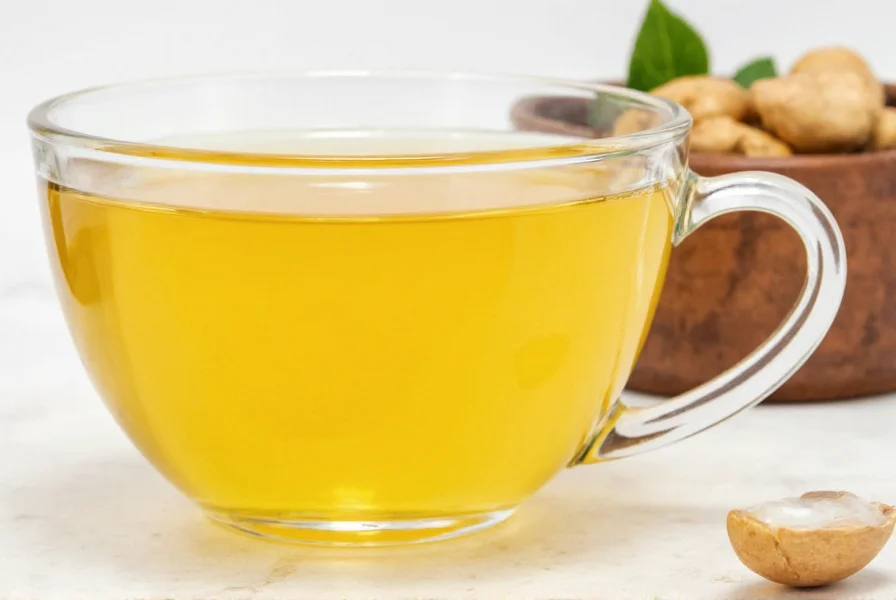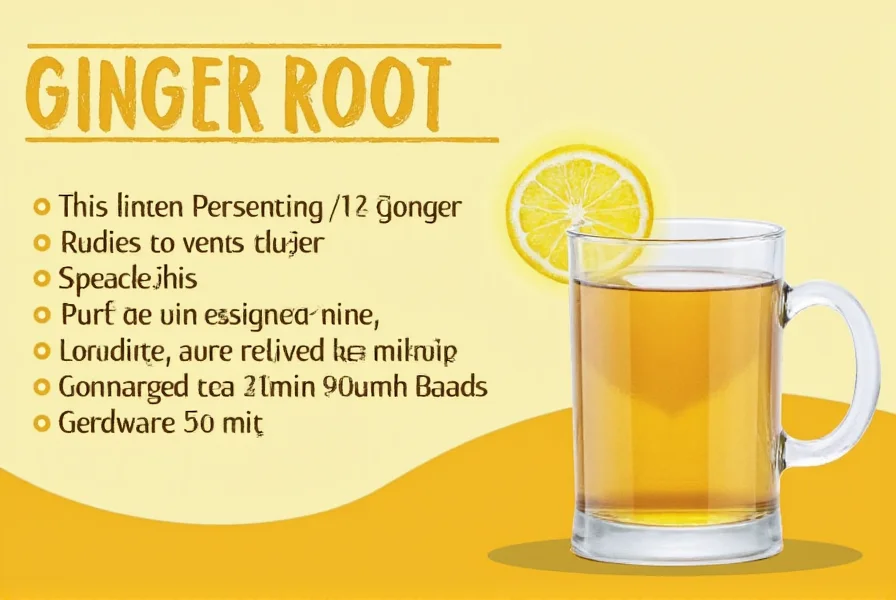For centuries, cultures worldwide have turned to ginger root lemon honey tea as a comforting remedy during cold season and for general wellness. This simple yet potent beverage combines three natural ingredients with documented properties that may support your body's natural defenses. While not a substitute for medical treatment, understanding the science behind this popular drink can help you incorporate it wisely into your wellness routine.
The Science Behind Each Ingredient
Ginger root (Zingiber officinale) contains bioactive compounds like gingerols that research shows possess anti-inflammatory and antioxidant effects. A 2013 review in Nutrition Journal highlighted ginger's potential role in supporting immune function. Lemon contributes vitamin C and flavonoids that work synergistically with ginger's compounds. Raw honey, particularly manuka honey, contains hydrogen peroxide and other compounds with demonstrated antimicrobial properties, according to research published in Microbiology and Antimicrobials.
| Ingredient | Key Compounds | Documented Properties |
|---|---|---|
| Ginger root | Gingerols, shogaols | Anti-inflammatory, antioxidant, may support digestion |
| Lemon | Vitamin C, flavonoids | Antioxidant, supports immune cell function |
| Raw honey | Hydrogen peroxide, methylglyoxal | Antimicrobial, soothing to mucous membranes |
Evidence-Based Benefits of Ginger Root Lemon Honey Tea
When preparing ginger root lemon honey tea for cold relief, the warmth alone can provide immediate comfort to sore throats. Research suggests the combination may offer additional benefits:
Immune Support: While not preventing illness, the antioxidants in this tea may help your body manage oxidative stress during infections. A 2020 study in Antioxidants noted ginger's potential role in modulating immune responses.
Sore Throat Relief: The honey component creates a protective coating on irritated tissues. The World Health Organization recognizes honey as a demulcent for cough suppression, particularly in children over one year old.
Digestive Aid: Ginger has been studied for its ability to accelerate gastric emptying. For those wondering how to make ginger lemon honey tea for digestion, using freshly grated ginger provides maximum active compounds.

Perfect Ginger Root Lemon Honey Tea Recipe
Creating an effective ginger root lemon honey tea recipe for immunity requires attention to preparation methods that preserve beneficial compounds:
- Peel and thinly slice 1-2 inches of fresh ginger root (about 2 tablespoons grated)
- Bring 2 cups of filtered water to just below boiling (195°F/90°C)
- Add ginger and steep covered for 10-15 minutes (longer for stronger tea)
- Strain into a mug and add the juice of half a lemon
- Wait until cooled to 110°F (43°C) before adding 1-2 tablespoons of raw honey
Timing matters when considering when to drink ginger lemon honey tea. Many wellness practitioners recommend consuming it first thing in the morning to stimulate digestion, or at the first sign of a sore throat. For maximum benefit during cold season, some people enjoy this beverage twice daily.
Safety Considerations and Limitations
Despite its popularity as a home remedy for sore throat with ginger lemon honey tea, certain precautions are essential:
- Infants: Never give honey to children under 12 months due to botulism risk
- Diabetics: Monitor honey intake as it affects blood sugar levels
- Medication interactions: Ginger may interact with blood thinners; consult your doctor
- Dental health: Rinse mouth after drinking to protect tooth enamel from lemon's acidity
It's crucial to understand that while many ask does ginger lemon honey tea help with sore throat, it provides symptomatic relief rather than curing underlying infections. If symptoms persist beyond 48 hours or include high fever, consult a healthcare provider.
Maximizing Your Tea's Benefits
The quality of ingredients significantly impacts your ginger root lemon honey tea benefits. Choose organic ginger when possible, as it's often grown with fewer pesticides. For lemon, fresh is superior to bottled juice for maximum vitamin C. When selecting honey, raw, unfiltered varieties retain more beneficial compounds than processed supermarket honey.
For those seeking a ginger lemon honey tea recipe for cold that's extra soothing, consider adding a pinch of turmeric for additional anti-inflammatory effects, or a cinnamon stick for complementary antioxidant properties. Remember that honey should always be added after the tea has cooled slightly to preserve its beneficial enzymes.

Realistic Expectations for Home Remedies
While traditional remedies like ginger root lemon honey tea have stood the test of time, maintaining realistic expectations is crucial. This beverage works best as part of a comprehensive wellness approach that includes proper hydration, rest, and nutrition. It may provide comfort and modest support to your body's natural healing processes, but it's not a replacement for medical treatment when needed.











 浙公网安备
33010002000092号
浙公网安备
33010002000092号 浙B2-20120091-4
浙B2-20120091-4